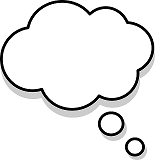Finding inclusive educational balance with students who have disabilities is not an easy task. There are many factors that affect not only the student’s willingness to participate, but their ability to consistently be a contribution to the overarching educational goal(s) that is set by the teacher. Cooperative learning opportunities encompass everything that is good and right about education, and the success of an entire body of students. Most importantly, the special education population that makes up a percentage of this student body plays a large role in these successes as well. Deeper learning, motivation, equity and inclusion are all aspects of PBL (Project Based Learning) and the ultimate goal that surrounds its pedagogy.
As with any instructional practice, students should have clear expectations, and feel a connection to the content. Why am I learning this, and how can I use these skills in life? In that process, students (both populations) should be able to problem-solve, feel motivated by the task, and work with each-other as learners (not individuals) to achieve success. Project-Based Learning is built on “identifying real-world problems” and coming to a solution (UQx, 2017). When performing the necessary tasks involved, all students have an equal-opportunity at both completing the learning or find themselves coming to a conclusion on where things may have gone wrong. These experiences are not true to just one kind of learner; it crosses many levels of understanding and learning styles. Using Project-Based Learning inclusively allows students with diverse learning needs to interact with his or her peers on a leveled-playing field, all with the same purpose and drive at heart. Hearing the voices of peers that they (learners with diverse needs) understand and possibly look-up to is momentous and a deciding factor in the learning process. Classmates motivate and push each other to new limits when given the tools to do so. There is no single teacher that can do this, however, the experience of PBL (Project Based Learning) and the unique opportunity to be with classmates as a unified unit can create those deep-learning experiences.
Outlined by Bloom’s Taxonomy, “higher-order cognitive skills” can embrace the learning experiences created by PBL and cooperative teaching methodology. When exposed to the learning-methods and practices of his or her own peers, the student’s motivation to participate and be part of the strategy is increased dramatically. There are times, especially when discussing students with diverse learning needs, that the learner is spending quite a few hours in another setting on discrete trials or receiving IEP services. Their participation in the general-education classroom is often limited and held to a small period of time during the week. Socially, the inclusiveness of Project-Based, Problem-Based and cooperative-teaching learning is needed. Academically, the inclusiveness is influential. Personally, the experience created by all three pedagogues cannot be compared to any other facet of education. Encouraging and allowing learners with diverse learning needs to participate in these learning-formats can mean the difference between a really good day filled with exploration, and just another day of the same language and learning in the classroom. Not every day can be PBL, and we all know this as educators, however, when used at the right time, and within the right environment, the PBL undertaking can drive learning for many years to come. For our students with diverse learning needs, isn’t this what we want?
Thanks, Robin Vogt
UQx: LEARNx Deep Learning through Transformative Pedagogy. (2017). University of Queensland, Australia. (an Open edX MOOC). Project Based Learning


